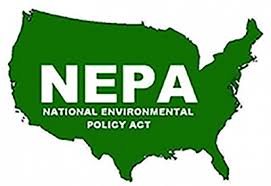Federal Circuit rules for water contractors
The Court of Appeals for the Federal Circuit has ruled in Stockton East Water Dist. v. U.S. that the federal government must pay damages to two California water districts for its failure to deliver water they were contractually promised. Plaintiff districts hold contracts for water delivery from the New Melones Reservoir, which is part of the Central Valley Project operated by the Bureau of Reclamation. The contracts were signed in 1983 and contemplated that deliveries would begin in 1989, but the districts did not request any water until 1993. The contracts called for minimum deliveries, subject to a shortage clause providing that the U.S. would have no liability for a shortage “because of drought, or other causes which, in the opinion of the Contracting Officer, are beyond the control of the United States.”
The minimum delivery levels called for the in the contracts were not met from 1993 to 2004. The U.S. claimed that it could not make the promised deliveries because of (1) state mandates requiring that water be used to meet senior water rights, provide for fish and wildlife, and protect water quality; (2) drought conditions; and (3) the Central Valley Project Improvement Act of 1992, which mandated that 800,000 acre feet of Central Valley Project water must be reserved for fish and wildlife purposes. The U.S. asserted that it was excused from making the deliveries by impossibility of compliance, the shortage clause, and the sovereign acts defense.
In rejecting those arguments, Judge Plager went out of his way to rule broadly against the United States. He upheld the trial court’s conclusion that the United States had not proven that the shortfalls were “entirely or to some specified extent the result of state requirements,” but then went on to suggest that even with such proof the U.S. would be liable “because a federal decision to adjust its management of the CVP to accommodate a change in state allocation policy is a policy decision determined by the Federal Government itself,” and therefore outside the scope of the shortage clause. With respect to the sovereign acts defense, Judge Plager’s opinion is a bit difficult to parse. It endorses the trial court’s conclusion that it need not determine whether the CVPIA was a genuine public act rather than an attempt to escape the government’s contractual obligations, because the U.S. had not shown that the CVPIA had made it impossible to comply with the delivery contracts. Judge Plager appears to believe that any discretion in implementing the CVPIA’s requirements foreclosed appeal to the sovereign acts doctrine, because the choice to withhold water from any specific contractor is necessarily directed at relieving the government of contract liability or nullifying contract rights.
That’s surely not true. The point of the sovereign acts defense is that the government does not lose its right to legislate for public purposes because it is a party to contracts that might be incidentally affected. The CVPIA’s requirement that water be dedicated to environmental purposes was surely enacted for a public purpose — environmental protection — rather than to undermine CVPIA water contracts. But Congress didn’t know enough about the system to direct precisely how the new environmental water should be used. Instead, Congress quite sensibly told Interior to manage that water “pursuant to conditions specified by the United States Fish and Wildlife Service after consultation with the Bureau of Reclamation and the California Department of Water Resources and in cooperation with the California Department of Fish and Game.” That’s what the U.S. says was done — FWS directed that substantial amounts of environmental water come from New Melones, presumably because that made environmental sense rather than because FWS had it in for these contractors. So long as the U.S. can show that there was an environmental reason within the scope of the CVPIA for its operational choices, it should be protected by the sovereign acts defense.
Judge Plager did uphold the trial court’s ruling that the U.S. had no liability for the shortfalls in years where the U.S. proved that those shortfalls were caused by drought conditions.
Overall, this ruling may have little impact beyond this case, because it relies heavily on the language of the shortage clauses in these contracts, which explicitly covers only events beyond the control of the U.S. Judge Plager distinguished the Ninth Circuit’s decision in O’Neill v. United States, 50 F.3d 677 (9th Cir. 1995), which held that the U.S. was not liable for reductions in deliveries to comply with the ESA and CVPIA, on the ground that the contracts at issue in that case included broader shortage clauses. This decision directly applies, therefore, only to contracts with this precise shortage clause.
Of course, that alone will significantly constrain management of the CVP for the remaining term of these contracts. And other contractors will surely try to extent Judge Plager’s cramped reading of the sovereign acts defense to their circumstances. Expect even more water contract litigation to follow.








Reader Comments